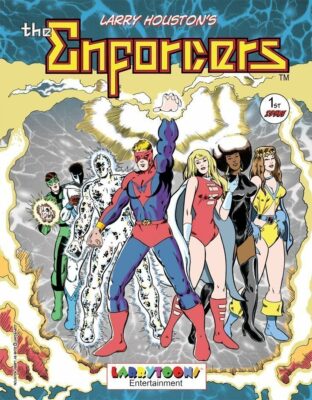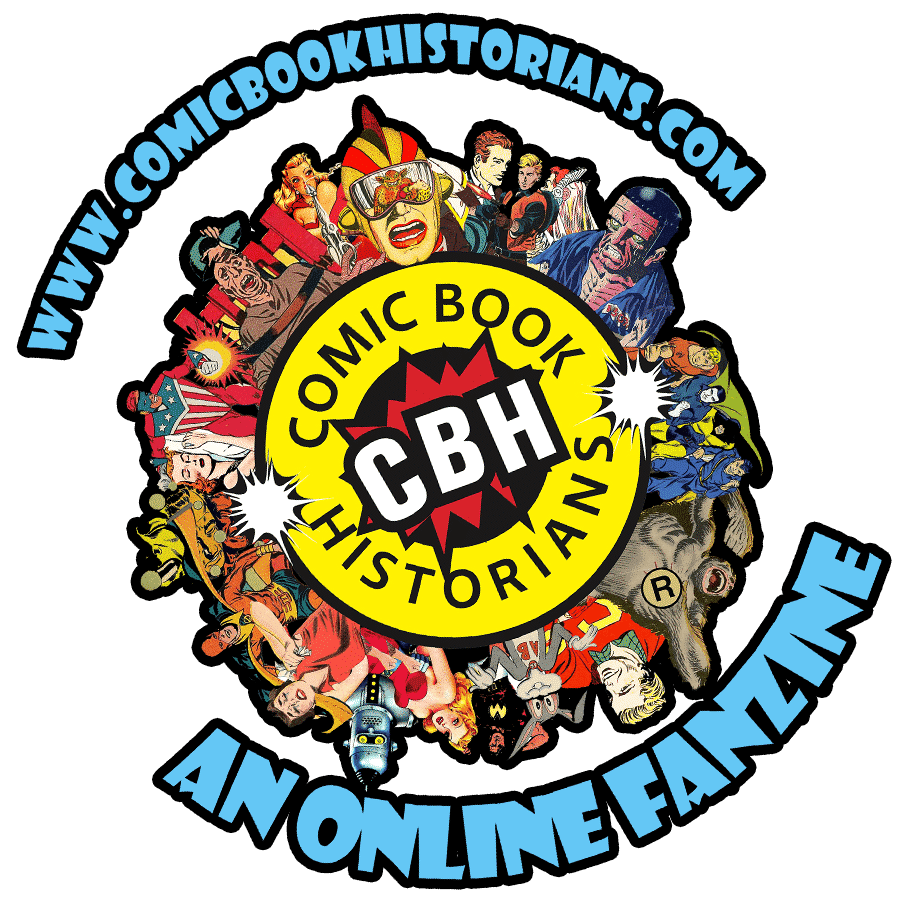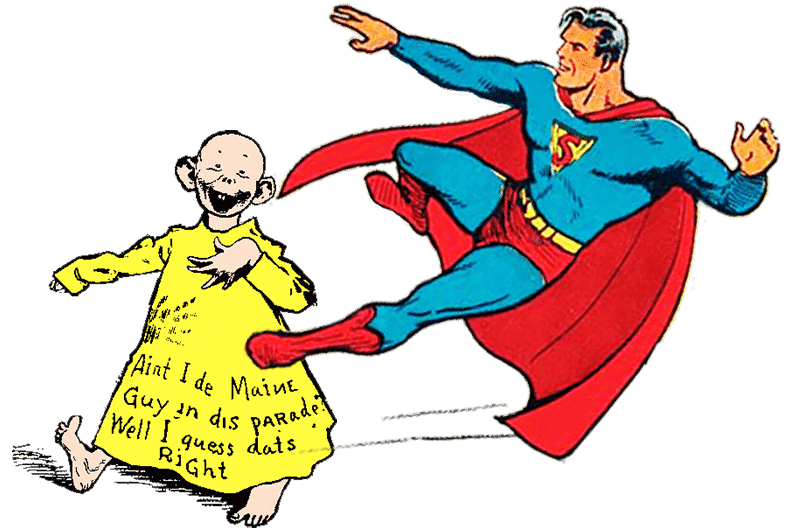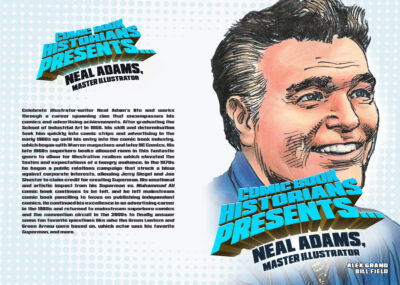Bill: Here we are with one of my heroes as an animator myself and that’s Larry Houston. Larry of course was responsible for the wonderful X-Men series of the 90s and many of the things he did have become canon since then. Larry, we welcome you to the Comic Book Historians Podcast.
Larry: Nice to be here guys, and glad you guys showed up. This is a great time to talk to all my fans and answer any questions that they have.
Bill: We’d like to know, can you give us a little background on how you got involved with the X-Men series, where you came from before that and where you went after it?
Larry: Let’s see, the long story is going to be, we tried to sell the X-Men at Marvel Productions in the mid-80s and I would include them into spider man and amazing friend shows trying to tease their network. Because back then there was only three networks; CBS, NBC, ABC.
Larry: We got them to sponsor a pilot called Pryde to the X-Men and when we did Kitty Pryde and Colossus and the whole nine yards. We got the Japanese to do a really good production, we got really good characters, actors to do characters and it didn’t sell. We were really disappointed, but what happened was my boss at Marvel Productions was Stan Lee and Margaret Lash. Fast forward about six years Margaret became the head of Fox Kids. Then when she became the head, she could green light it on her own and so she gave me a call, and Will Meugniot and Eric and we said, “Let’s do the X-Men show,” and that’s how we got it on the air. Margaret Lash was the real reason it got on the air. A lot of people above her didn’t believe in the show but they let her green light the show. A lot of people didn’t have faith that it was going to succeed. You got to remember back then the internet, there was no internet. There’s no likes, these likes, none of that stuff so we had to fly by the seat of our pants and create a show that a fan boy would want to see.
Larry: But we blended it with being a fan, but also being a professional because I had been directing cartoon shows for about 12 years before I got the chance to do the X-Men. I was able to blend both of those disciplines together and do a show that I thought, “This is a show if I was a kid, I would have want to see it,” and so that’s what I did. My philosophy in doing the X-Men, is that you have to adapt when you take on from a book to a movie or a book to a TV. But my philosophy is that you only change things if you have to. Don’t change things because you can.
Larry: I would bring in my comic book collections and put it on the Xerox machine so we can make sure we got all the costumes correct. Because I was a geek and I used to read all the stuff from that 60s all the way up forward, I knew all the relationships. Who was the brother, the sister, who hated this person, who loved that person, and all that stuff. I had all this useless trivia in my head so that when the shows were being written, I would hand out the scripts, the storyboards. I knew what would work, what didn’t work, and I could tell the artists do this, don’t do that. Blow this up, make more emphasis on this, less emphasis on that. I was able to creatively guide the show and course correct as needed to make sure the show followed the comic books as closely as possible. That’s what I did.
Alex: One of my favorite episodes Larry, you might remember this one. It was when Storm and Wolverine were in an alternate dimension, or a different timeline. They were in love, but to restore the timeline they had to sacrifice their love. I’m not kidding. I was a teenager. I actually cried a little bit at the end of that episode. I’m not kidding. But one thing I want to ask you is why do you think Pryde of the X-Men didn’t get green lit? Because I loved that as a kid.
Larry: Myself, Will Meugniot and Rick Colbert, we were all puzzled. We put our best foot forward. We thought we had put together a show that met everybody’s what they wanted at the time. We tried to make it as accurate as we could of Marvel show. It was a mystery to us. I think at the time it just didn’t click with the upper management and it didn’t click with a toy company, which actually was funding the pilot. It just didn’t hit, and it wasn’t until we got onto Fox.
Larry: One of the things I like to talk about, like to remind people is that when we were doing the X-Men, we wanted to make sure we had an excellent show. We were getting a lot of crap from overseas and so we talked to Margaret Loesch, who was the head of Fox and she got on their butts and said, “Look, you guys are going to do a good job.” The show actually should have come out in September, but because we required them to do good work, it didn’t come till January.
Larry: Guess what, by January, all of the other shows were in rerun. We were the only new show so the show had a really good chance to be sampled by a lot of kids and it took off from that point forward.
Alex: Yeah, that’s awesome.
Larry: It really worked out. It wasn’t by design, it was by accident, but all the stars aligned at the right time to make.
Bill: What I loved about it I have to say is, you kept the soap opera-ness of Marvel Comics and the fact that you made sure you had the relationships, you had the inks, you had all of the drive in the TV show. That was part of your plan also, wasn’t it? That’s why it was such a serialized phenomenon, because you did follow some pretty intricate and long term storylines. That was new for animation 20 years ago, wasn’t it?
Larry: Yes, it was and a lot of that you have to put at the footsteps of Eric and Julia Lee Wall, which is the guys who are next to me. One of the things we all wanted to do was, don’t write down to kids. Write up to kids in terms of levels of sophistication. Because in the beginning when they see it, they’ll see the flash, they’ll see the explosions. But on later viewings, they’ll catch the subtext of the adult relationships going on.
Larry: There’s more enjoyment when they see it again, because they’re seeing something they didn’t see before. That’s what we wanted to do, is always write up to kids, don’t write down. Don’t make it silly and stupid.
Bill: What I also wanted to talk to you about is, it still plays today. It’s still is just as good as it was 20 years ago. I think that’s a testament to your wonderful direction and the fact that you had this vision, epic vision in my terms, and I think that you created something that is still to this day, something that’s not dated. It really tells the Marvel stories the way they should be.
Bill: Honestly, it’s a testament to you as a fan and as someone who made sure that you were quality oriented, you wanted to bring it to the kids and not give them baby art or baby storyline.
Larry: We did not want to write down to the audience. We wanted to make sure that the stories were accurate as we could like Days of Future Past. Because it was Saturday morning, you really couldn’t kill people. But we adapted the stories as best we could, to try and evoke the same feeling without showing what we couldn’t show on Saturday morning. We tried to make the story sophisticated and like I said, we only change things if we have to. If we didn’t have to, we just follow the books.












